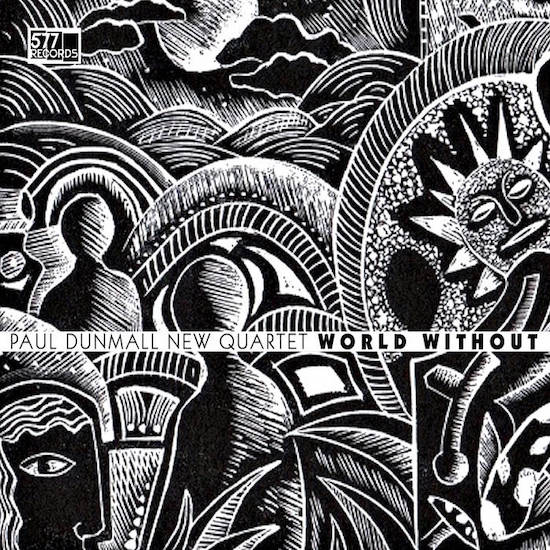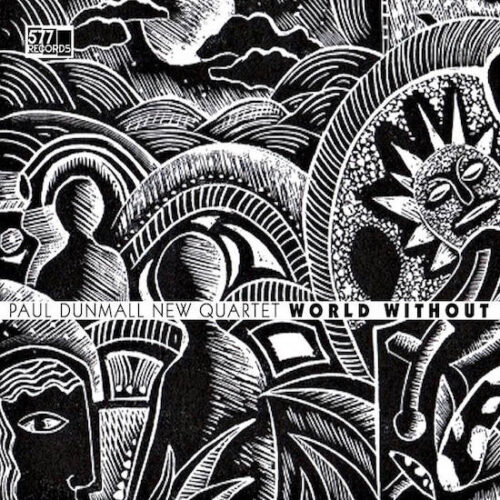As he celebrates his 70th birthday, there is an aura of rejuvenation surrounding British saxophonist Paul Dunmall. Whether the fresh spirit and rediscovered interest in his works is down to the cyclical nature of trends in the music industry or some other reason is beside the point. Considering the exemplary breadth and quality of his discography, Dunmall was rarely given the recognition he deserved, so the enthusiasm with which his recent works have been welcomed is rather rewarding. This year alone, his name has appeared on a minimum of eight albums (and counting), which ranged from the solo clarinet introspections of Meditations For Clarinets to the swinging, grooving free jazz performed by his large ensemble on It’s A Matter Of Fact. World Without lodges itself neatly into this diverse continuum of styles by tapping into a simultaneously more abstract and daringly energetic side of things
The “new” in the name of Dunmall’s New Quartet can be understood as referring to both this group being one of his most recent creations and the fact that his colleagues all belong to a younger generation of British jazz musicians and improvisers. While Dunmall has already shared the stage with each of guitarist Steven Saunders, bassist Dave Keane, and drummer Miles Levin – son of longtime collaborator Tony Levin – this is a different and rawer affair compared to any of their previous encounters. Recorded at the end of 2021, World Without captures the quartet in two half hour long exercises that meander between atmospheric, gossamer-like abstractions and sections overrun by fiery free jazz rollercoasters. While a hint of a theme or repeating motif appears here and there, the material feels entirely improvised. Regardless, it possesses a charming sense of direction and purposefulness.
‘The Beauty In You’ opens with Dunmall’s short licks whirling between spiccato bowed bass and hard edged guitar chords. Soon enough, though, he breaks free and enunciates an elongated, melodic phrase. The group follow close behind him, circling and building layer upon layer until they’re ripping and roaring a repartee that comes dangerously close to replicating the energy of John Coltrane and Rashied Ali’s Interstellar Space. From there, things gradually defuse. The quartet quiets down, falling back into a nearly post-rock kind of lull, all expansive sustain and ambient grinding.
‘World Without’ is similarly roaming. Its moments of unbridled free jazz skronk are tempered with a lyrical sense of melody and a vibe that can be best described as that of lounge jazz played in a smoke-filled underground bar. Although both cuts allow ample space of expression to individual musicians – Levin entertains quite a few curious, deviating patterns – Dunmall acts as a focal point and driving force, moving the band from mode to mode, only occasionally letting Saunders take over the reins for great effect. His extended solo spots and dialogues with spitting, snaking saxophone lines are utterly exhilarating, avant rock adjacent formations, while the serrated edges of his guitar tone and heavy attacks faintly evoke Sonny Sharrock’s explosive playing.
At the beginning of the year, 577 Records released That’s My Life, an archival album that documented a session played by Dunmall, Paul Rogers, and Tony Orrell in 1989. Listening to World Without and That’s My Life back to back, it becomes clear that, 34 years later, Dunmall has not lost any of the brisk fluidity, John Coltrane-inspired lyricism, or sense of scherzo in his phrasing. Instead, he has honed a controlled, distinctive style that enables him to take on any shape of jazz and free improvisation he wishes, always with superb results.



